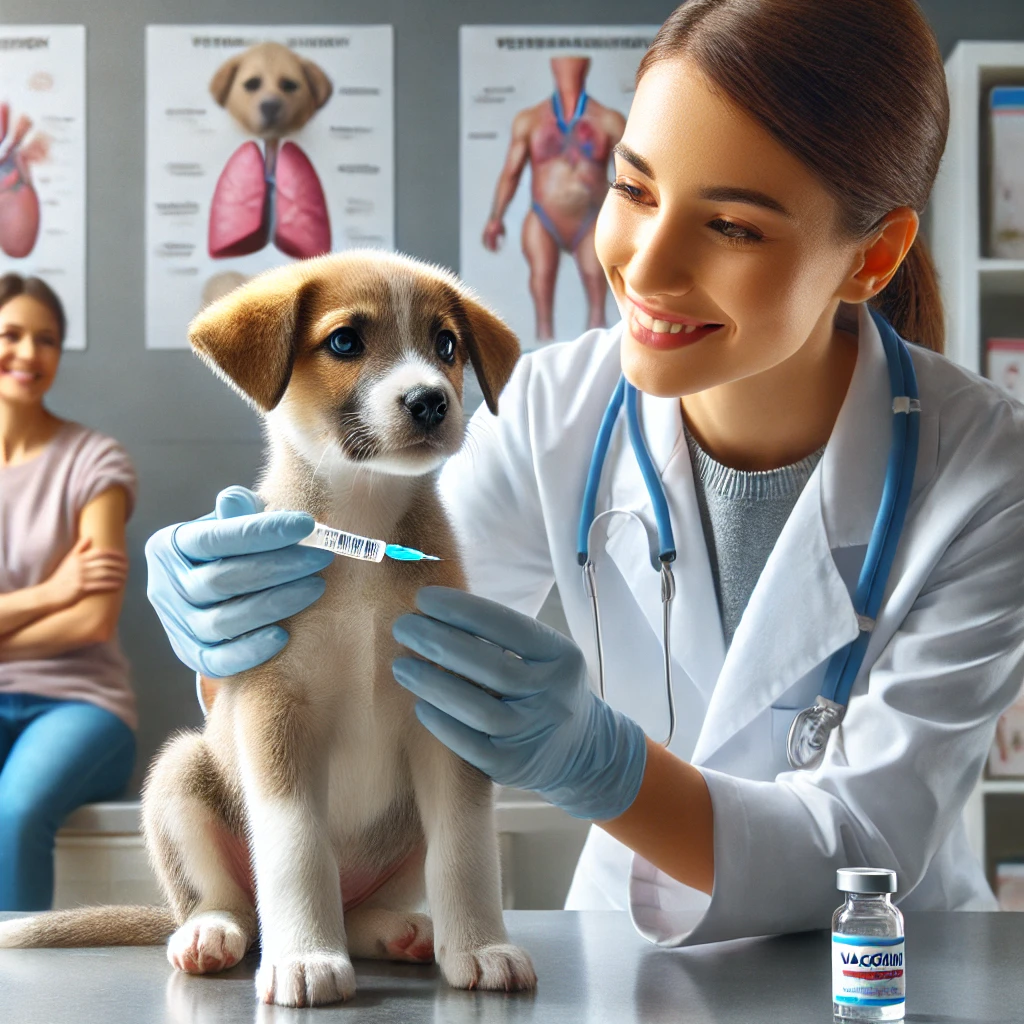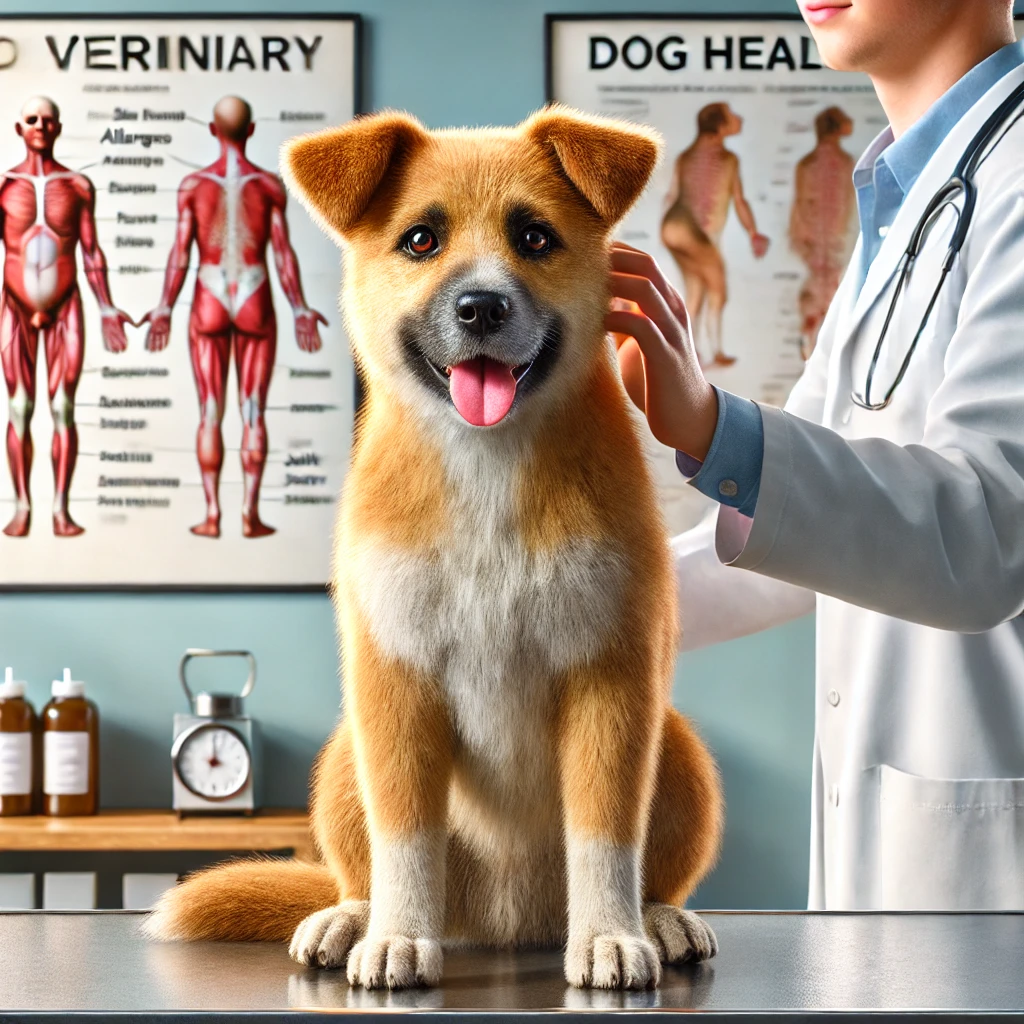Adopting a new puppy is an exciting time, but they also come with responsibilities. Making sure your puppy has all of the necessary vaccinations to keep your new best friend safe from deadly diseases is one of the most important steps you will take during this initial period. In this guide, we will outline what vaccinations your puppy needs, when they should receive them, and what each vaccine protects against.
Table of Contents
Why Are Vaccinations Important for Puppies?
Puppies are at risk of a whole host of infections due to their immature immune defense system. Vaccinations strengthen their immunity by exposing them to an inactivated part of a pathogen, thus helping them build immunity without coming down with an infection. This protects your puppy from serious illnesses, allowing them to live a healthy life.
Core vs. Non-Core Vaccines: What are the Types of Dog Vaccines?
- Core Vaccines: Essential for every puppy and dog, protecting against highly contagious and virulent diseases.
- Non-Core Vaccines: These are recommended depending on the lifestyle, environment, and risk factors of the puppy. Consult the veterinarian to find out whether these are needed for your puppy.
Puppy Core Vaccines
Here is a list of core vaccines that every puppy requires:
1. CDV Vaccine for Canines
- What it protects against: A serious viral disease attacking a dog’s respiratory, gastrointestinal, and nervous systems. It is frequently lethal or leads to permanent neurologic injury.
- Vaccination Timing:
- Primary: 6-8 weeks old
- Boosters: 2-4 weeks until 16 weeks old
- After: Booster at 1 year, every 3 years
- Why It’s Vital: Distemper is highly contagious and incurable, so this critical vaccination shields your beloved pet from such a devastating affliction.
2. Canine Parvovirus (CPV) Vaccine
- What it protects against: Parvovirus is a highly contagious, and often fatal, disease that primarily affects puppies (though adult dogs may contract it), causing severe vomiting, diarrhea, and subsequent dehydration.
- Vaccination Timetable:
- Primary: between 6 & 8 weeks of age
- Boosters: every 2–4 weeks until 16 weeks of age
- Follow-up: 1 year later, then, every 3 years to life
- Why: Because parvovirus is highly contagious and is epidemic in young puppies, timely vaccination is essential.
3. Canine Adenovirus (CAV-1 +CAV-2) Vaccine
- Prevents: Infectious canine hepatitis (caused by adenovirus 1) and adenovirus 2-related respiratory disease
- Vaccination Schedule:
- First dose: 6-8 weeks of age
- Boosters: 2-4 weeks apart until 16 weeks of age
- Follow-up: 1 year booster followed by every 3 years
- Why It Matters: The CAV vaccine protects your puppy from liver and respiratory infections.
4. Rabies Vaccine
- Prevents: Rabies is a viral disease of the central nervous system that is almost always fatal. Rabies can infect people through a bite or a scratch, so vaccinating against rabies is mandatory in many areas.
- Vaccination Schedule:
- First given at: 12-16 weeks
- Followup: 1 year booster, then every 1-3 years (depending on state law and vet recommendation)
- Reason it is Important: Rabies is fatal and can be transmitted to humans. Vaccination is essential to prevent letting a rabid animal loose!
Non-Core Vaccines: Extra Discipline Based on Lifestyle
Non-core vaccines are given based on the environment, lifestyle, and exposure risk of your puppy. As an example, here are some of the more routinely done non-core vaccines:
1. Leptospirosis Vaccine
- What It Prevents: Leptospirosis is a bacterial infection that impacts the liver and kidneys and can be passed on to humans.
- When to get it:
- Initial: 12 weeks
- Boosters: Second dose 2-4 weeks after the first, then annually
- Importance: Very contagious for dogs that are outdoors or near wildlife or water sources, so the vaccine is crucial for active or rural dogs.
2. Kennel Cough (Bordetella Bronchiseptica) Vaccine
- What It Protects Against: Bordetella is a bacterial infection that leads to respiratory disease including kennel cough, a very contagious disease.
- Vaccination Schedule:
- First dose: 8 to 16 weeks of age (given orally, intranasally, or by injection)
- Boosters: Annually or given as needed
- Why It’s Needed: The Bordetella vaccine protects against respiratory illness in dogs that will be boarded, attend daycare, or visit dog parks.
3. Lyme Disease Vaccine
- What It Prevents: Lyme disease is a tick-borne bacterial infection that can cause lameness, fever, and kidney disease.
- Schedule for Vaccination:
- First injection at approximately 12 weeks of age
- Second injection 2-4 weeks later
- then yearly
- Why You Need to Do It: Particularly if your pup lives in an area with ticks or spends time in the woods, they should have this vaccine.
4. Bottom Line About the Canine Flu (Dog Flu) Vaccine
- What It Prevents: Canine influenza is a contagious respiratory disease caused by specific strains of the virus.
- Vaccination schedule:
- First dose: Approximately 12 weeks of age
- Boosters: Second dose 2-4 weeks later, then annually
- Why it matters: This vaccine can be helpful for dogs like those in kennels, daycare, or high-contact environments, as it prevents respiratory disease.
Tips to Make the Vaccination Go Smoothly
- Follow The Timeline: By maintaining the puppy vaccination schedule, your puppy will develop the immunity it requires.
- Record Details: Keep track of the vaccinations your puppy receives and when the boosters are due.
- Expect Some Mild Side Effects: Mild side effects, like a low fever or tenderness, occur in some puppies. Take your dog to a vet if the signs do not improve.
- Organize Periodic Vet Visits: Regular check-ups will ensure that the puppy vaccinations are in check and help identify other health problems early on.
Getting your puppy vaccinated is one of the biggest steps you can take to protect their health. Consulting your vet and following the suggested puppy vaccination schedule is the perfect start in life for your puppy, ensuring they are safe from dangerous illnesses. It will ensure your puppy is happy, healthy, and living with you for as long as possible — each vaccine plays an important role in their well-being!




